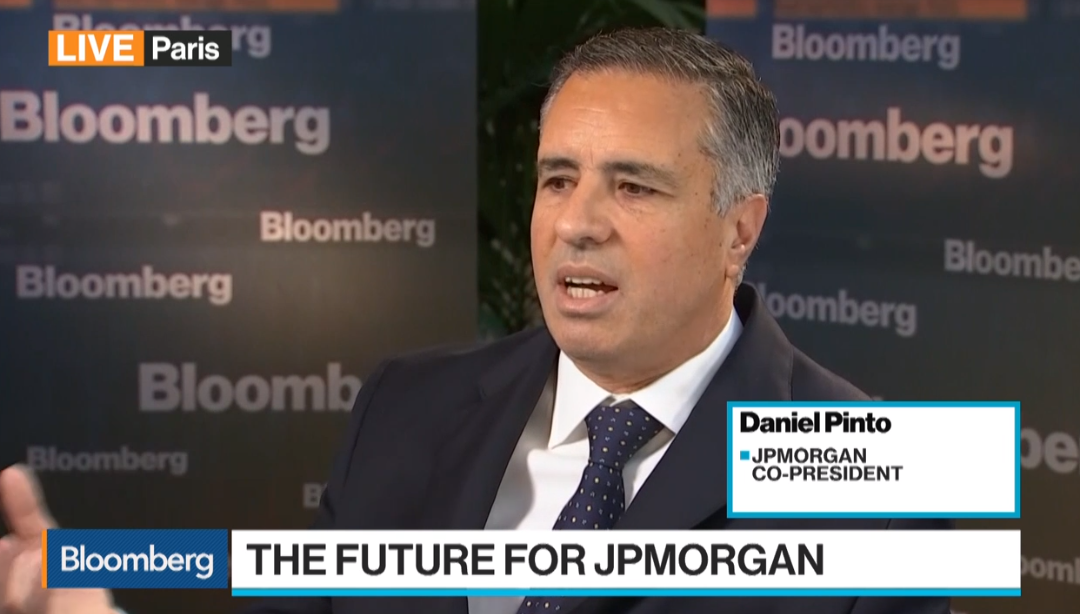JPMorgan Co-President Daniel Pinto says that December’s market meltdown that wiped out much of the year’s gains will be a recurring feature of the trading environment for the foreseeable future.
“Some asset managers, they see these dips driven by volatility as an opportunity to add risk, but overall, they’re all slightly under-invested.”
“Over time, you will probably see several more market events like we saw in December,” Pinto said last week in at the World Economic Forum meeting in Davos, Switzerland.
December’s massive sell-off saw the S&P 500 sink into bear market territory on Christmas Eve and it was the worst December for stocks since 1931 amid concerns over the ongoing trade war and a global economic slowdown.
Things have bounced back here in late January, but we should be prepared for further volatility, Pinto says. Thanks to an aging economic boom and market structure changes, the pattern of volatility is likely to continue through 2019.
Per CNBC:
“People know we are working towards the end of the cycle, and they have built some risk and some positions that they’ve been accumulating for years, and they know that when they want to trade, liquidity won’t necessarily be there,” Pinto said. “So markets will tend to overreact to things, and you have these big moves, and then a correction to rationality, as we’ve seen.”
While experts from billionaire hedge fund manager Leon Cooperman to CNBC’s Jim Cramer have called for regulators to examine the causes of the December sell-off, the moves aren’t unexpected given post-financial crisis rules imposed on banks, said Pinto.
‘Faster and Deeper’
Since institutions must hold more capital and take less risk, there are fewer big players to step in when declines push equities to attractive valuations. The moves are exacerbated by hedge funds employing computerized momentum-based strategies, resulting in corrections that are “faster and deeper,” he said.
“This is not necessarily an unintended impact,” Pinto said. “Regulators wanted to create a system that is safe, not a system where people wouldn’t lose money.”
The new market reality — a topic written about extensively by J.P. Morgan quant Marko Kolanovic — means that big institutional investors are adjusting by holding more cash and moving into or out of positions over longer periods, Pinto said.
“Some asset managers, they see these dips driven by volatility as an opportunity to add risk, but overall, they’re all slightly under-invested,” Pinto said. That’s beneficial to markets because “you want dry powder to put to work when you see the market becomes irrational.”
The December losses weren’t confined to equities. Corporate bonds and currencies experienced sudden dislocations that left banks flat-footed. Every major U.S. investment bank reported this month that December’s chaos hurt fourth-quarter performance, pushing fixed-income revenue down by at least 16 percent from the year earlier.
But overall, Pinto said he actually prefers the current market to the pre-financial crisis environment. Instead of continually rising markets, leading ultimately to euphoria and then massive collapse, it’s in a period of rolling corrections that has reined in expectations for corporate profits, he said.
“I don’t dislike what is happening in the markets,” Pinto said. “Whether this is by design or by luck, it’s a better way to navigate the end of the cycle.”




